From subtle to candid, this year has seen a significant increase in movies, many extremely memorable, that deal with the alternative sexuality of women
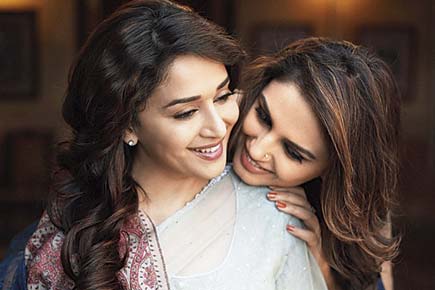
For the second consecutive year, an Indian entry was adjudged Best Asian Film at the Toronto International Film Festival. After last year’s Qissa, Margarita, with a Straw has wowed audiences and jury alike at Toronto, if the constant buzz on Twitter is anything to go by.
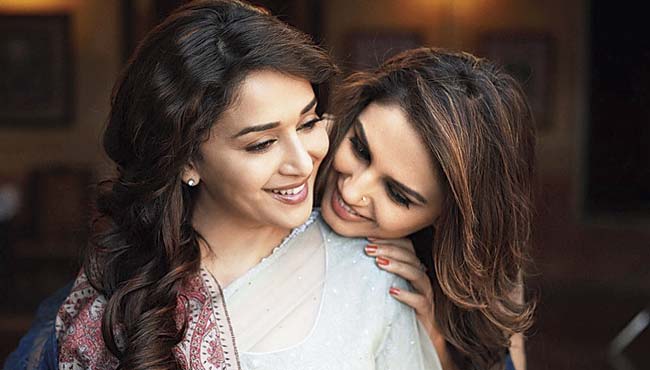 Madhuri Dixit and Huma Qureshi in Dedh Ishqiya
Madhuri Dixit and Huma Qureshi in Dedh Ishqiya
ADVERTISEMENT
Lead actor Kalki Koechlin’s performance as Laila, an aspiring writer living with cerebral palsy, is so masterly that when she walked into the post-screening Q & A session, statuesque as ever in a Sabyasachi couture outfit, there was reportedly an audible gasp of surprise from many who had simply assumed the role had been played by a real-life wheelchair user.
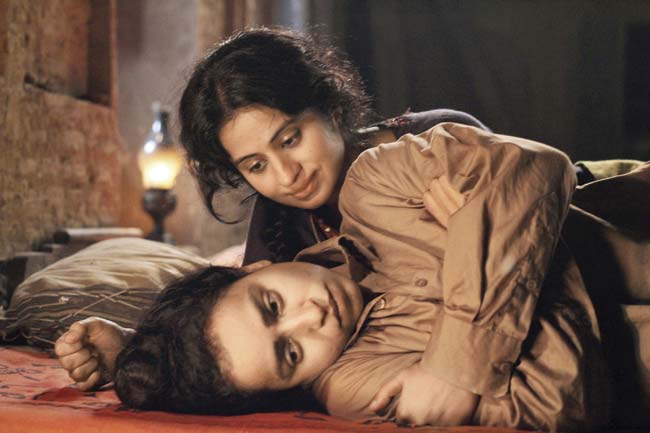
A tender moment from Anup Singh’s film Qissa
What marks Laila out as different from the winsome (and decidedly straight-laced) creations who have inhabited other ‘Indian woman discovering herself in the West’ narratives like English Vinglish and Queen, is the fact that she is equipped with a full-blown sexuality that refreshingly doesn’t kowtow to her physical impairment.
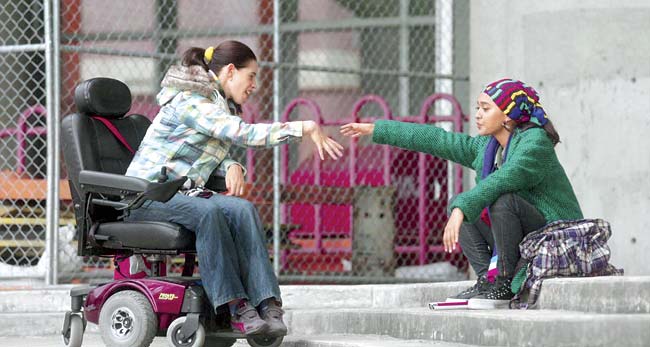
Kalki Koechlin plays a Cerebral Palsy sufferer who refuses to kowtow to her physical impairment
Intriguingly, she chooses both male and female partners, and the film’s two-minute promo perhaps packs in more lesbian adventurism than several decades of Indian film, in which queer women remain woefully under represented.

Kangana Ranaut (r) and Lisa Haydon in Queen
Director Shonali Bose has openly spoken about how she has drawn from her own bisexual relationships and her cousin’s journey with cerebral palsy. It would be interesting to see whether Laila’s sexual fluidity is allowed such fervid expression because her own ostracism leads to a rejection of the labels (and behaviours) that ‘able-bodied’ people box themselves into so easily.
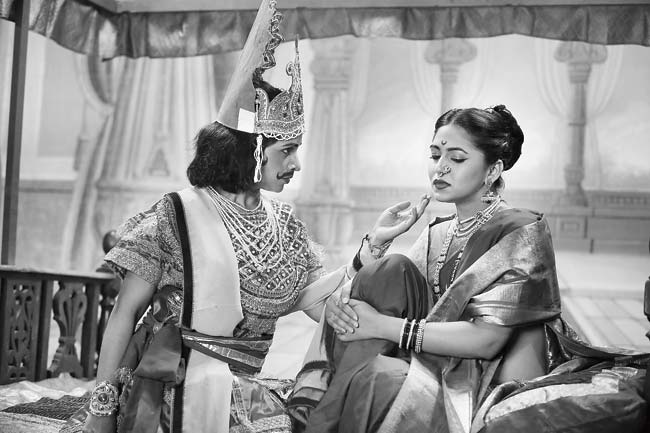
A still from Ravi Jadhav’s short film Mitraa
Margarita, with a Straw brings to mind Waaris Hussein’s Sixth Happiness, a 1997 film which dealt with the equally indiscriminate sexual awakening of a young gay Parsi writer (Firdaus Kanga) afflicted with brittle bones, who also resolutely refused to play the victim.
Affirmative
Koechlin’s work is yet another affirmative portrayal in a year, that has proved to be particularly bountiful when it comes to cinema that deals with the alternative sexuality of women, whether sub textual or in your face. Sometimes, it is a textured telling, half-hidden in the mist.
For example, the companionship of queen dowager and faithful retainer (Madhuri Dixit and Huma Qureshi respectively) gently being revealed as a love match in Abhishek Chaubey’s Dedh Ishqiya, while being denied the most basic of tropes that liberally adorn conventional romances.
Their male suitors, cuckolds in the making, certainly garner much more air-time for their doomed courtships, but can only just roll their eyes when confronted with the sheer abandon (and utter congruence) of feminine skirmishes.
A spurned admirer (Naseeruddin Shah) alludes to goings-on that should best find expression under a Lihaaf, a fleeting reference to the Ismat Chughtai short story (famously embroiled in an obscenity trial in the 1940s because of its overtly lesbian theme). Immediately, the smouldering vibe between the women is given a powerful context.
It marks their lives, already bereft of men, as ever more precarious (although Chaubey equates this with Thelma & Louise style freedom), and a second viewing (through these lens) can yield the unexpected dividends of a love story in hiding but only just, because the film's true business in gangland UP lies elsewhere.
The other Dixit-starrer this year, Gulaab Gang, hints at a similar connection between two strongly-etched women, Divya Jagdale and Priyanka Bose, but their interior worlds remain unexplored.
Alternative
Alternative themes also provide ballast to Vikas Bahl’s buoyant Queen, featuring a bravura turn by Kangana Ranaut as Rani, a small-town girl, who is jilted at the altar by her cad of a fiancé, Vijay, but flits off to Europe for her ‘honeymoon’ irrespective.
In Paris, she encounters another Vijay, short for Vijaylaxmi (the sultry Lisa Haydon in one of the year’s breakout performances), a feisty hotel attendant who exclaims in a thick French burr, ‘I hate bras!’, as she pulls off the offending article of lingerie with intrepid flair in a cinematic moment that is pure gold.
There is a certain friskiness to the friendship the women strike up, with a buddy song and a spot of boob-grabbing thrown in, but more than laying on lesbo-erotic undertones, Bahl seems to be shining the light on relationships (alternative or otherwise) with a subtlety not typical of Indian cinema.
In a ‘makeover’ scene, Rani tries out skimpy outfits at a store. Too shy to emerge from the changing-room, she sends selfies in ‘sexy poses’ to a bored (but supportive) Vijaylaxmi, sprawled out on a lounge like a bored husband, even twirling a moustache borrowed from a mannequin.
A selfie accidentally dispatched to the original Vijay makes him suddenly yearn for the woman he had spectacularly spurned, having now been accosted with this new sensuous avatar. It’s an interesting ‘compare and contrast’ scenario with an empathetic woman standing in for an insensitive (if archetypal) man.
For her troubles, she is rewarded with what Rani had intended to be the highlight of her honeymoon — a romantic hand-holding trip up the Eiffel Tower. There is some delicious irony in that this takes place with the new Vijay who is certainly Rani’s Mr Right, even if she is a woman (or maybe because she is one).
That both women prefer men sexually seems to be almost besides the point. To underline his film’s inclusiveness, Bahl includes a Urdu-spouting stripper in Amsterdam, who has no qualms about servicing either men or women, and happily takes Rani into her boudoir.
Fringe
Away from the mainstream, in the queer fringe, the mainstay is usually films about gay men and transgenders. This year though, the Kashish queer film festival has had solid lesbian offerings. Director Ravi Jadhav is no stranger to the world of gender-queer cinema, with both Natarang and Bal Gandharva hailed as significant works that dealt with conflicted cross-dressing male actors.
He has now directed Mitraa, a short Marathi film based on Vijay Tendulkar’s play Mitrachi Goshta, which was first performed in 1981. In the film, Veena Jamkar steps into a role memorably created by Rohini Hattangady for the stage, and Jadhav gives it the feel of a black-and-white classic, although Jamkar’s characterisation as Sumitra, an otherwise self-possessed woman who grapples with both lesbian and trans issues, seems almost anachronistic.
Tendulkar’s inspiration was a real-life actress whose career was stunted when her affair with another woman was widely publicised. All this in the same decade as the Lihaaf obscenity trial, so perhaps, the 40s were well ahead of the times.
Sumitra is portrayed with warmth and empathy, with no attempt to view her ‘condition’ as pathologised, and a scene in which she comes into her element while playing a man on stage packs quite a punch, as an incandescent Jamkar exudes both masculine swagger and aching vulnerability.
Although stagey in parts and suffering from a hastily put-together denouement, Mitraa is still a sensitive human document that deserves to be more widely seen. Another film showcased at Kashish was Ipshita Maitra’s lesbian romance Between Dreams and Waking.
Freishia Bomanbehram plays an educated Muslim girl, Aaliyah, in love with her ‘friend’ Sam (Kalliroi Tziafeta), a match her family is opposed to. It is a thin sliver of a film undone by melodramatic clichés supplied in profusion by Aaliyah’s broad-brush family.
Agenda
Several of these films serve as veiled critique of patriarchy, but none more so than Anup Singh’s impressive Qissa, in which an inherently queer narrative is pushed by patriarchal agenda. In what could prove to be a career-defining part, Tillotama Shome plays a girl brought up as a boy (because her father wanted a son) who is married off to a woman (Rasika Duggal).
As a clean-shaven truck driver, Shome inhabits her part with a beguiling boyishness and delivers a ‘good son’ prototype that bridges in no small measure the gender divide, and her palpable chemistry with Duggal’s spirited gypsy girl certainly opens up several cans of worms about how conditioning (extreme, in this case) impacts our life choices so irrevocably yet innate human nature still shines through. The film opened in Germany in July, but still awaits release in India.
Different
Unlike queer male representation over the past two decades, that have peddled stereotypes or allowed actors to use effete ‘gay tics’ to essay their roles, the queer women in this year’s season betray no trace of lesbian typecasting. Yes, in Mitraa, Jamkar displays an ugly possessive streak, but it is no different from Shah Rukh Khan’s masochism in Devdas.
Koechlin beats to her own drummer but even Sayani Gupta’s spunky activist in Margarita, with a Straw, clad in dowdy protest attire, is hardly a lesbian seducer. In Dedh Ishqiya, Qureshi and Dixit are ravishing divas (unlike the lascivious corpulent women of Chughtai’s Lihaaf) and Tziafeta and Bomanbehram in Between Dreams are also fetching everyday women.
There is a diversity in these depictions, but we must also guard against the carte blanche of only wholesome portrayals cloaked in conventional femininity. Albeit tangentially, the film that draws up a more nuanced portrayal of feminine identity is Nisha Pahuja’s pathbreaking The World Before Her, which introduces us to Durga Vahini foot-soldier Prachi Trivedi, who eschews her feminine trappings and spurns marriage, even as she tries to regiment other women into more expected codes of conduct and almost relishes their submissiveness.
It is a unique window into the hidden queerness of the ‘other’ India which is as real as it gets. Perhaps, we have barely begun to scratch the surface when it comes to telling the stories of some of India’s most repressed people but some ground has certainly been broken.
 Subscribe today by clicking the link and stay updated with the latest news!" Click here!
Subscribe today by clicking the link and stay updated with the latest news!" Click here!







